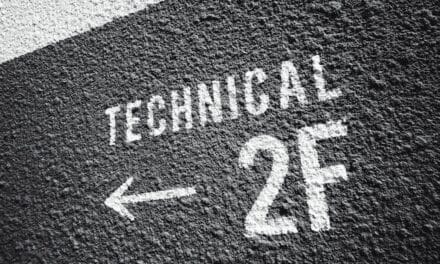In today’s competitive landscape, executive coaching for start-up founders has emerged as a game-changer, providing the guidance and support necessary to navigate the challenges of entrepreneurship. Did you know that nearly 50% of start-ups fail within the first five years? This startling statistic underscores the importance of effective leadership and strategic decision-making in ensuring long-term success. As a founder, you are tasked with multiple roles—visionary, strategist, and team builder—all of which require refined skills and a deep understanding of market dynamics. Executive coaching offers tailored strategies that empower founders to overcome obstacles, enhance their leadership capabilities, and create a resilient and thriving organization. Whether you're grappling with uncertainty, striving for work-life balance, or looking to build a cohesive team, investing in executive coaching can provide invaluable insights that drive sustainable growth.
Understanding the Role of an Executive Coach for Start-Up Founders
Executive coaching for start-up founders is a transformative process that focuses on enhancing leadership capabilities and driving business success. It involves working with a trained professional who helps founders articulate their vision, develop strategies, and navigate the challenges that come with launching a new venture.
What is Executive Coaching?
At its core, executive coaching is a partnership between an executive coach and a client, aimed at fostering personal and professional growth. The coach provides tailored guidance, tools, and insights that empower founders to make informed decisions and lead their teams effectively.
Why Executive Coaching is Essential for Start-Up Success
Start-up founders often face unique challenges that require strong leadership and strategic foresight. An effective executive coach can support founders in several ways:
Clarifying Vision and Goals: Helping founders define their mission, vision, and actionable goals.
Building Confidence: Instilling a sense of confidence in their decision-making abilities.
Enhancing Leadership Skills: Fostering essential leadership qualities such as effective communication, emotional intelligence, and resilience.
Navigating Challenges: Offering guidance on overcoming obstacles and managing crises that arise in the fast-paced start-up environment.
By engaging in executive coaching, start-up founders can significantly enhance their ability to lead their organizations to success, creating a solid foundation for growth and sustainability.
For more insights on leadership coaching, you can explore Harvard Business Review for valuable resources.
Key Benefits of Executive Coaching for Start-Up Founders
Engaging in executive coaching for start-up founders offers numerous advantages that can significantly impact the trajectory of a new venture. These benefits extend beyond immediate problem-solving, laying the groundwork for long-term success.
Enhanced Decision-Making Skills
One of the primary benefits of executive coaching is improved decision-making abilities. Founders learn to:
Analyze Situations: Break down complex scenarios to understand various perspectives.
Evaluate Risks: Assess potential risks against rewards, leading to more informed choices.
Trust Their Instincts: Build confidence in their intuition and judgment.
Improved Leadership Capabilities
Another critical benefit is the development of strong leadership skills. Founders are equipped to:
Motivate and Inspire Teams: Foster an environment where team members feel valued and empowered.
Delegate Effectively: Learn to trust their team by delegating responsibilities appropriately.
Communicate Clearly: Master the art of clear and open communication, vital for team cohesion.
Tailored Strategies for Growth and Scalability
Executive coaching offers start-up founders tailored strategies specific to their business challenges. Coaches assist in:
Setting Realistic Goals: Establishing achievable, measurable objectives aligned with the start-up's vision.
Identifying Growth Opportunities: Recognizing market trends and potential areas for expansion.
Developing a Scalable Business Model: Crafting strategies that can adapt as the business grows.
By harnessing these benefits through executive coaching, start-up founders can cultivate effective leadership that not only drives immediate growth but also establishes a robust foundation for future success.
For more insights and research on the impact of coaching on business success, visit McKinsey & Company.
Identifying the Right Executive Coach
Choosing the right executive coach is a crucial step for start-up founders who wish to maximize the benefits of executive coaching. A suitable coach not only understands the complexities of start-up ecosystems but also aligns with the founder's specific needs and aspirations. Here are some essential factors to consider when selecting an executive coach:
Qualities to Look for in a Coach
An effective executive coach for start-up founders typically possesses several key characteristics:
Industry Experience: Familiarity with the technology sector and start-up challenges.
Coaching Credentials: Recognized coaching qualifications and a proven track record of success.
Strong Communication Skills: Ability to convey complex ideas in an accessible manner.
Empathy and Understanding: Capacity to relate to the founder's experiences and emotions.
Questions to Ask Potential Coaches
To determine whether a coach is a good fit, founders should prepare thoughtful questions, such as:
What is your coaching philosophy and approach?
Can you provide references or testimonials from previous clients?
How do you adapt your coaching to suit individual client needs?
What measurable outcomes can I expect from our sessions?
The Importance of Industry Experience
Select a coach who has experience working specifically with start-ups and understands the unique challenges faced by founders. Industry-specific knowledge helps ensure that the coaching advice is relevant and actionable, greatly enhancing the effectiveness of the coaching relationship.
By carefully considering these factors, start-up founders can find an executive coach who not only aligns with their vision but also propels their leadership development to new heights.
For more resources on selecting the right coach, explore Forbes for expert advice and insights.
The Coaching Process: What to Expect
Engaging in executive coaching for start-up founders involves a structured process that guides the founder through various stages of personal and professional development. Understanding what to expect can enhance the coaching experience and ensure fruitful outcomes.
Initial Assessment and Goal Setting
Every coaching journey begins with an initial assessment, where the founder's strengths, weaknesses, and goals are examined. This phase typically includes:
Self-Assessment Tools: Utilizing questionnaires to evaluate leadership styles, skills, and areas for improvement.
Feedback from Peers and Team Members: Gathering insights on how the founder is perceived within their organization.
Defining Clear Objectives: Establishing specific, measurable goals that the founder aims to achieve during the coaching engagement.
Customized Coaching Sessions
Once goals are set, the coaching process moves into personalized sessions tailored to the founder's unique needs. These sessions may include:
Focused Discussions: Addressing specific challenges and exploring solutions in depth.
Skill-Building Exercises: Engaging in activities designed to enhance leadership competencies and decision-making skills.
Role-Playing Scenarios: Practicing real-world situations to build confidence and develop crisis management skills.
Ongoing Evaluation and Feedback
Throughout the coaching relationship, regular evaluation is key to ensuring that progress is being made. This phase involves:
Tracking KPIs: Monitoring key performance indicators related to the founder's goals.
Regular Check-Ins: Scheduled feedback sessions to discuss progress, setbacks, and adjustments that may be needed in the coaching approach.
Reflection Practices: Encouraging the founder to reflect on their personal growth and actions taken as a leader.
By understanding the coaching process and what to expect, start-up founders can more effectively leverage executive coaching to enhance their leadership skills and drive their businesses toward success.
For additional insights into the coaching process, visit LinkedIn for a wealth of professional development resources.
Common Challenges Faced by Start-Up Founders
Start-up founders encounter a myriad of challenges as they navigate the complexities of building and leading a new business. Understanding these common obstacles is crucial for effective executive coaching for start-up founders. Here are some key challenges that many founders face:
Navigating Uncertainty and Risk
The start-up environment is fraught with uncertainty, and founders often grapple with making decisions with incomplete information. Key aspects include:
Market Fluctuations: Rapid changes in market conditions can impact business strategies.
Funding Challenges: Securing adequate funding can be a constant source of stress and uncertainty.
Product Development Risks: Aligning product development with market needs requires calculated risks.
Balancing Work-Life Dynamics
The demanding nature of start-up life can make it difficult for founders to maintain a healthy work-life balance. Challenges include:
Long Hours: The need to invest considerable time in the business can take a toll on personal life.
Burnout Potential: The pressure of responsibility can lead to physical and mental exhaustion.
Neglecting Relationships: Personal relationships may suffer as founders prioritize their business.
Leading a Diverse Team
As start-ups grow, founders often lead diverse teams with varying backgrounds and skill sets. This brings challenges such as:
Communication Barriers: Different communication styles can lead to misunderstandings.
Cultural Differences: Navigating and respecting diverse perspectives can be complex.
Conflict Resolution: Managing conflicts and fostering teamwork requires effective leadership skills.
By identifying these challenges, executive coaches can better assist start-up founders in developing strategies to overcome obstacles and lead their organizations with confidence and resilience.
For further insights into the trials faced by start-up founders, consider exploring Entrepreneur, which offers an array of resources tailored to the needs of entrepreneurs.
How Executive Coaching Addresses These Challenges
Executive coaching for start-up founders serves as a powerful tool to navigate the unique challenges encountered in the entrepreneurial landscape. Coaches provide guidance and strategies tailored to address specific obstacles, enabling founders to enhance their leadership effectiveness and foster business growth. Here’s how executive coaching can help tackle some of the identified challenges:
Strategic Thinking and Problem Solving
Helping Frame Problems: Coaches can guide founders in breaking down complex issues into manageable components, allowing for clearer problem identification.
Encouraging Creative Solutions: By fostering a culture of innovation, coaches help founders think outside the box and develop unique solutions to their challenges.
Scenario Planning: Coaches assist in envisioning various scenarios to prepare for different outcomes, enhancing the founder's decision-making skills under uncertainty.
Building Resilience and Adaptability
Stress Management Techniques: Coaches equip founders with tools to manage stress, enhancing their ability to handle pressure effectively.
Cultivating a Growth Mindset: Encouraging a mindset of continuous learning helps founders to embrace challenges rather than shy away from them.
Responding to Change: Coaches facilitate developing adaptability skills, preparing founders to pivot swiftly in response to market trends or business needs.
Fostering a Strong Company Culture
Defining Core Values: Coaches help founders articulate their vision and core values, laying the groundwork for a robust company culture.
Enhancing Team Dynamics: Through coaching, founders learn techniques for building strong, cohesive teams that collaborate effectively.
Conflict Resolution Strategies: Coaches provide frameworks for addressing conflicts constructively, contributing to a positive workplace environment.
Through these tailored strategies, executive coaching empowers start-up founders to overcome challenges, enhancing their leadership acumen and fostering a thriving organizational culture.
For additional resources on the role of coaching in business, consider visiting Deloitte, which provides insights into leadership and organizational effectiveness.
Measuring the Impact of Executive Coaching
Evaluating the effectiveness of executive coaching for start-up founders is essential for understanding its value and long-term impact. By establishing clear metrics and tracking progress through structured assessments, founders can determine the coaching's influence on their personal and business growth. Here are some key components of measuring the impact:
Key Performance Indicators (KPIs)
Setting specific KPIs helps in assessing the success of coaching interventions. Common KPIs for start-up founders include:
Revenue Growth: Tracking increases in revenue can indicate successful strategic decisions influenced by coaching.
Employee Engagement Scores: Higher engagement scores often reflect improved leadership and team dynamics resulting from enhanced coaching.
Goal Attainment: Measuring the achievement of set objectives provides a tangible way to evaluate progress throughout the coaching process.
Reflection and Personal Development Growth
Personal growth is another critical measure of coaching success. Founders should consider:
Self-Assessment: Regularly reflecting on personal development and leadership skills acquired through coaching.
Feedback from Peers: Gathering insights from team members on perceived changes in leadership effectiveness and communication.
Adaptability: Evaluating how the founder adapts to new challenges and situations as a result of the coaching experience.
Long-Term Benefits for the Start-Up
In addition to immediate improvements, the long-term benefits of executive coaching can include:
Sustainable Business Practices: Development of strategies that promote long-term scalability and profitability.
Enhanced Leadership Pipeline: Coaching fosters a culture of leadership that strengthens future leaders within the organization.
Positive Company Culture: A thriving, cohesive work environment leads to better employee retention and satisfaction.
By systematically measuring these aspects, start-up founders can gain a comprehensive understanding of how executive coaching contributes to their personal development and the overall success of their ventures.
For further insights into measuring coaching effectiveness, visit Gartner, a leading research and advisory company providing in-depth analyses and guidance on organizational performance.
Conclusion: Making the Most of Executive Coaching for Your Start-Up
In the fast-paced world of entrepreneurship, executive coaching for start-up founders is a vital resource that can significantly enhance leadership skills and overall business effectiveness. By leveraging the insights gained from coaching, founders can establish a strong foundation for both personal and organizational growth. Here are key takeaways to ensure you get the most out of your coaching experience:
Building a Sustainable Leadership Framework
Embrace Continuous Learning: Commit to ongoing personal development and actively apply the strategies learned during coaching sessions.
Set Clear Goals: Regularly revisit and refine your objectives to align with your evolving vision and business landscape.
Maintain Open Communication: Foster transparent dialogue with your coach to ensure that your needs and challenges are addressed throughout the coaching process.
Continuing the Learning Journey
Implement What You’ve Learned: Actively apply insights from coaching to real-world scenarios in your start-up, fostering both practical growth and confidence.
Engage with Your Network: Share knowledge and leadership strategies with peers to create a supportive community that encourages growth and innovation.
Reassess Regularly: Periodically review your progress and adapt strategies as necessary to stay aligned with your goals and market conditions.
By maximizing the benefits of executive coaching, start-up founders can cultivate effective leadership qualities that not only drive individual success but also inspire their teams and contribute to a thriving company culture. This investment in personal and professional development ultimately creates a pathway for sustainable business success.
For more information on effective leadership practices, check out resources from Harvard Business Review, an authority on business leadership and management insights.
What is executive coaching for start-up founders?
Executive coaching for start-up founders is a professional development process that involves personalized guidance from a trained coach. This coaching is designed to enhance leadership skills, improve decision-making abilities, and address the unique challenges faced by founders in the entrepreneurial landscape.
How can executive coaching benefit my start-up?
Executive coaching can significantly benefit your start-up by equipping you with the tools and strategies needed to navigate challenges effectively. It helps you clarify your vision, enhance team dynamics, and develop essential leadership skills that contribute to the overall success of your organization.
How do I choose the right executive coach?
Choosing the right executive coach involves researching potential candidates, assessing their qualifications, and ensuring they have relevant industry experience. Look for coaches who can demonstrate a successful track record with start-ups and align with your specific personal and business goals.
What can I expect during the coaching process?
During the coaching process, you can expect a structured approach that includes an initial assessment of your skills and goals, personalized coaching sessions tailored to your needs, and ongoing evaluation of your progress. This process is designed to foster your development as a leader and support the growth of your start-up.
How can I measure the effectiveness of executive coaching?
Measuring the effectiveness of executive coaching can be achieved by establishing clear key performance indicators (KPIs), such as revenue growth, employee engagement levels, and achievement of personal and business goals. Regular reflections and feedback sessions with your coach can also provide insights into your development and the impact of the coaching on your performance.





